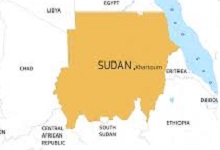OPINION – By Janez Lenarčič – A unique moment for positive change in Sudan should be seized now, argue Janez Lenarčič, European Commissioner for Crisis Management, and Jan Egeland, Secretary General of the Norwegian Refugee Council. Around 50 countries and international organisations will come together at the High-Level Sudan Partnership Conference tomorrow to stand in solidarity with Sudan.
The conference is being held at a crucial moment for the nation, as it continues the path to reform that it embarked on in 2019 to build peace, good governance and inclusive economic recovery. The Transitional Government that was formed after hundreds of thousands of Sudanese people took to the streets, has taken milestone steps that will translate into a better future for Sudan and set it on the right track of reform.
Co-hosted by the European Union, United Nations, Germany and Sudan, tomorrow’s conference aims to support Sudan in its effort for democratic change built on peace, justice and sustainable prosperity, for all the country’s people.
Constructive peace talks were launched in October 2019 and the legal reforms that were initiated, such as repealing the repressive public order act and the criminalisation of female genital mutilation, set a clear sign of a break from the past. A tangible commitment towards the achievement of the UN’s Sustainable Development Goals has also been established. At the same time, important progress has been made in providing a framework for a more positive institutional environment for democracy, justice for all and inclusive peace.
Sudan is also turning over a new leaf on the humanitarian front. Relief organisations that were expelled in 2009 under the previous regime are now welcomed back, including the Norwegian Refugee Council. Today, we are in Khartoum to symbolically celebrate the door that has been opened, allowing aid organisations to return and contribute to lifesaving humanitarian action.
Our two organisations, the EU and the Norwegian Refugee Council, are starting a project to provide quality education to children in Khartoum’s informal displacement settlements. Six NRC humanitarian staff will also start working today, thanks to the Humanitarian Air Bridge facilitated by the EU, Sweden and France.
Humanitarian needs in Sudan are significant. The country is reeling from the effects of decades of conflict, fragile basic services, an economic crisis and the coronavirus pandemic that has added additional strain to the decimated health system. An estimated 9 million people rely on humanitarian assistance, with access to food and basic services, such as health and education, a major concern.
Humanitarian access suffered enormously from the choking restrictions, supervision and bureaucratic hurdles that aid organisations faced under the former Sudanese regime. For years, many areas in Darfur, South Kordofan and Blue Nile states remained underserved for lack of access. International organisations including ours advocated constantly with the authorities to respect basic humanitarian principles and international humanitarian law, allow unhindered access for humanitarian aid, as well as protection of civilians.
Real progress has been visible in humanitarian access over the past year and in measures that facilitate the delivery of aid. Sudan’s historic transition presents a unique opportunity for the country to engage towards a fully enabling environment for humanitarian staff to work and improve the lives of ordinary people.
The transition brings with it a collective responsibility – for Sudanese authorities and aid organisations – to work towards a culture shift in the way the humanitarian and development aid sector operates, to ensure the best use of all resources: humanitarian, development and peace. It is only through building synergies between these fields that the lives of people can be improved in a sustainable way. Such an approach can ensure that not only immediate, emergency needs are met, but also that people slowly gain self-reliance and can rebuild their lives.
The road ahead for Sudan to address humanitarian needs and achieve peace will not be without challenges. At the High-Level Sudan Partnership Conference, we will reiterate our support for Sudan as it travels down this road, and as the country lays the foundations for a better life for all Sudanese.
EDITOR’S NOTE – Janez Lenarčič is European Commissioner for Crisis Management, and Jan Egeland, Secretary General of the Norwegian Refugee Council.

